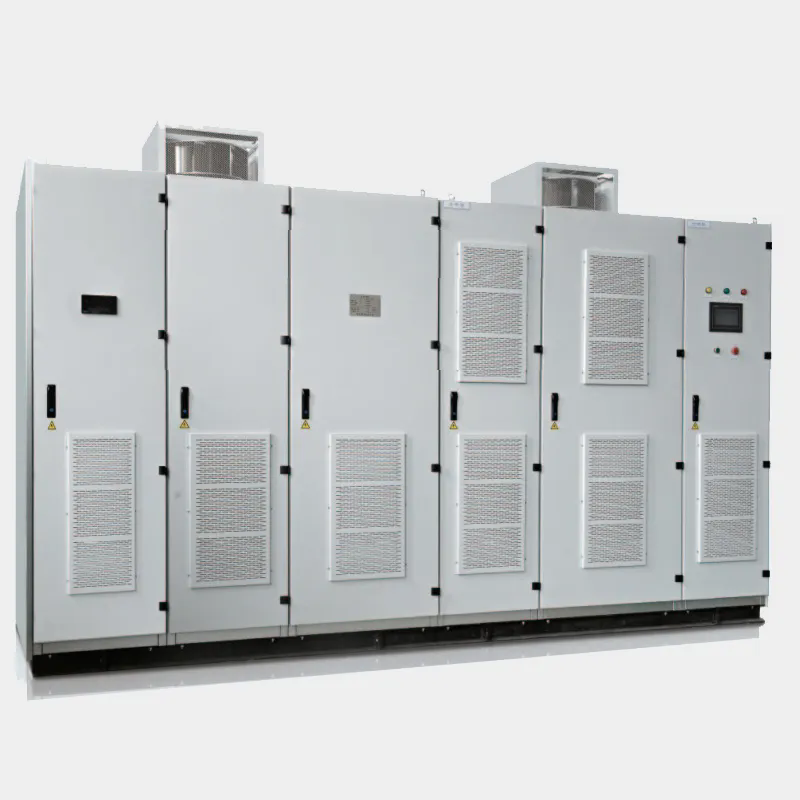Solid Soft Starters: Enhancing Efficiency and Longevity in Motor Control
2024-08-21
In the realm of electrical engineering and industrial automation, the smooth and efficient operation of electric motors is crucial. One of the key components that play a significant role in ensuring this smooth operation is the soft starter. Among various types of soft starters, solid-state soft starters are particularly notable for their advanced performance and reliability. This blog explores the features, benefits, and applications of solid soft starters, shedding light on their role in modern motor control systems.
What Is a Solid Soft Starter?
A solid soft starter is an electronic device designed to manage the start-up and stop of electric motors by gradually ramping up the voltage applied to the motor. Unlike traditional electromechanical soft starters, solid soft starters use solid-state components such as thyristors or TRIACs to control the voltage and current flow. This results in smoother and more controlled motor operation.
Key Features of Solid Soft Starters
1. Solid-State Technology:
Solid soft starters utilize solid-state components instead of mechanical parts. This technology ensures greater reliability and longevity, as there are no moving parts that can wear out or fail.
2. Gradual Voltage Ramp-Up:
These devices allow for a gradual increase in voltage, reducing the inrush current during motor start-up. This soft start process minimizes mechanical stress on the motor and associated equipment, enhancing overall system longevity.
3. Adjustable Start and Stop Settings:
Solid soft starters offer adjustable settings for start and stop times, allowing for customization based on specific application requirements. This flexibility ensures optimal performance and protection for different types of motors and loads.
4. Overload and Fault Protection:
Many solid soft starters come with built-in protection features, including overload protection and fault detection. These safeguards help prevent damage to the motor and associated equipment, ensuring safe and reliable operation.
5. Energy Efficiency:
By reducing the inrush current and minimizing mechanical stress, solid soft starters contribute to improved energy efficiency. They help reduce energy consumption and lower operational costs.
6. Compact and Robust Design:
Solid soft starters are typically designed to be compact and robust, making them suitable for a wide range of industrial and commercial applications. Their durable design ensures reliable performance in demanding environments.
Benefits of Solid Soft Starters
1. Reduced Mechanical Wear and Tear:
The gradual ramp-up of voltage helps reduce mechanical stress on the motor and associated components. This results in less wear and tear, extending the lifespan of both the motor and the equipment.
2. Improved System Efficiency:
By managing the inrush current and providing a smooth start, solid soft starters improve the overall efficiency of the motor control system. This can lead to lower energy consumption and reduced operational costs.
3. Enhanced Motor Protection:
Solid soft starters offer protection against overloads and faults, safeguarding the motor from damage. This protection helps maintain reliable operation and reduces the risk of costly repairs or replacements.
4. Customization and Flexibility:
The adjustable settings of solid soft starters allow for customization based on specific application needs. This flexibility ensures that the motor operates optimally in various conditions and scenarios.
5. Improved Start-Up Performance:
Solid soft starters provide a smooth and controlled start-up, reducing the impact on the motor and associated equipment. This improves overall performance and reliability.
6. Reduced Electrical Interference:
The controlled voltage ramp-up minimizes electrical interference and reduces the likelihood of voltage spikes, contributing to a more stable and reliable electrical system.
Applications of Solid Soft Starters
1. Pumps and Fans:
In applications involving pumps and fans, solid soft starters provide a smooth start-up, reducing mechanical stress and ensuring reliable operation. They are commonly used in water treatment facilities, HVAC systems, and industrial processes.
2. Conveyors and Material Handling:
Solid soft starters are used in conveyor systems and material handling equipment to manage the start and stop of motors. Their smooth start-up helps prevent jerking and reduces wear on mechanical components.
3. Compressors:
For compressors, solid soft starters offer a controlled start-up, reducing the inrush current and mechanical stress. This extends the lifespan of the compressor and improves overall efficiency.
4. Industrial Machinery:
Solid soft starters are employed in various industrial machines, including manufacturing equipment and production lines. They help ensure smooth operation and protect the machinery from damage.
5. HVAC Systems:
In heating, ventilation, and air conditioning (HVAC) systems, solid soft starters manage the start-up of motors for fans and pumps. This contributes to efficient and reliable operation of the HVAC system.
6. Agricultural Equipment:
Agricultural machinery, such as irrigation systems and grain handling equipment, benefits from the smooth and controlled start-up provided by solid soft starters. This helps maintain optimal performance and reduce mechanical wear.
Choosing the Right Solid Soft Starter
1. Determine Application Requirements:
Assess the specific needs of your application, including the type of motor, load characteristics, and start-up requirements. Choose a solid soft starter that meets these needs and offers the necessary features.
2. Consider Voltage and Current Ratings:
Ensure that the solid soft starter is compatible with the voltage and current ratings of your motor. Verify that it can handle the required load and operating conditions.
3. Evaluate Adjustable Settings:
Look for solid soft starters with adjustable start and stop settings. This allows for customization based on the specific requirements of your application.
4. Check for Protection Features:
Review the protection features of the solid soft starter, including overload protection and fault detection. These features help ensure safe and reliable operation.
5. Consult with Experts:
If you have specific questions or need guidance on selecting the right solid soft starter, consult with industry experts or suppliers. They can provide valuable insights and recommendations based on your application.
Conclusion
Solid soft starters represent a significant advancement in motor control technology, offering a range of benefits including reduced mechanical wear, improved efficiency, and enhanced motor protection. By providing a smooth and controlled start-up, these devices contribute to the longevity and reliability of electric motors in various applications. Understanding the features, benefits, and applications of solid soft starters allows you to make informed decisions and optimize your motor control systems. Embrace the advantages of solid soft starters and experience the difference they can make in your operations.



